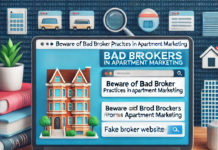This article was written by:
Lewis Robinson, Business Consultant and Writer.
Whether you’re starting up your business or building up one you’ve already gotten off the ground, there are many strategies out there you can use to help yourself. Here are some tips to use when you want to strengthen your small business.
Working Within Your Means
The first step for this is to make sure your personal credit history is clean and start your company’s credit. You can start with a company credit card and co-sign on it at first, but the ultimate goal is to establish the company’s credit separately from your own when you’re able to. You should also form good relationships with creditors, clients and vendors. Start small. You can start a business checking account with your personal bank and establish a line of credit with small purchases from a store that is used to catering to small businesses, like an office supply store. Stores like these and local bank branches should be well-equipped to help you establish a credit history for your business. Additionally, forming a positive relationship with creditors and vendors early on will help you in the future. You will be able to create and access more revenue streams, as well as build a good reputation as a business that pays vendors back on schedule.
You should always stay well within your means when you borrow. Pay off any credit card bills in a timely manner, on a weekly basis if possible. This can help you establish payment installments as a habit early on and also help you establish a good credit score quickly and maintain it in the long-term. Another option is to purchase from multiple vendors. This strategy helps you keep an eye on the wider industry to ensure fair pricing, keeps you from being tied to one provider and can also improve your credit score.
Invoice Factoring
Depending on the type of small business you’re running, invoice factoring can be a good avenue to immediate cash flow. Small business invoice factoring is when a company buys a business owner’s outstanding receivables at a discount. It’s a good option for companies that sell goods and services to other entities such as the government or other businesses. Invoice factoring has several advantages. In general, it’s easier to be approved for a credit line with an invoice factoring company than it is to be approved for a bank loan. This type of credit line also tends to be available when business is slow and times are tough. Invoice factoring can help you stabilize your company’s cash flow during these times. And unlike other types of loans, invoice factoring fees are typically lower and can be easier to negotiate.
Focusing on the Local Market
When you’re a small business owner, you have an advantage in the local market. You can nurture an organic connection with the community your business is based in, especially if you make connections through community events and in online spaces. Digital platforms and social media are making it more affordable to operate and advertise businesses than ever. You can easily leverage social media for free by encouraging customer reviews, posting pictures and blogs frequently and interacting with people online. You can also supplement this approach with paid ads. These are more expensive, but the combination of personal community engagement and paid advertising strategy can help you branch out and expand your market.
You can also engage with the local market in person. See if there are any shop local or Small Business Saturday events in your area and get involved. Explore loyalty programs and special sales or discounts. Try to involve yourself in the community outside of your business, too. Support other local businesses and nonprofit organizations. Help sponsor or raise money for a local school event. There are many opportunities to get involved with the community and establish a base of support for your small business.
These are some basic tips to build a strong small business. These tips can work well as a base to tailor to your business’ unique needs and circumstances.
Lewis Robinson is a business consultant specializing in CRM and sales. He’s helped start several small businesses. He currently spends his time as a writer and personal consultant.





